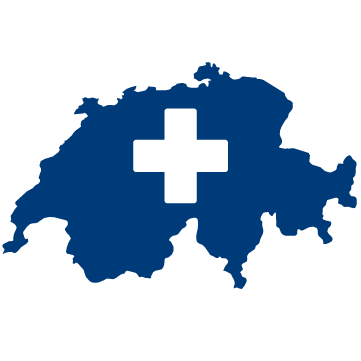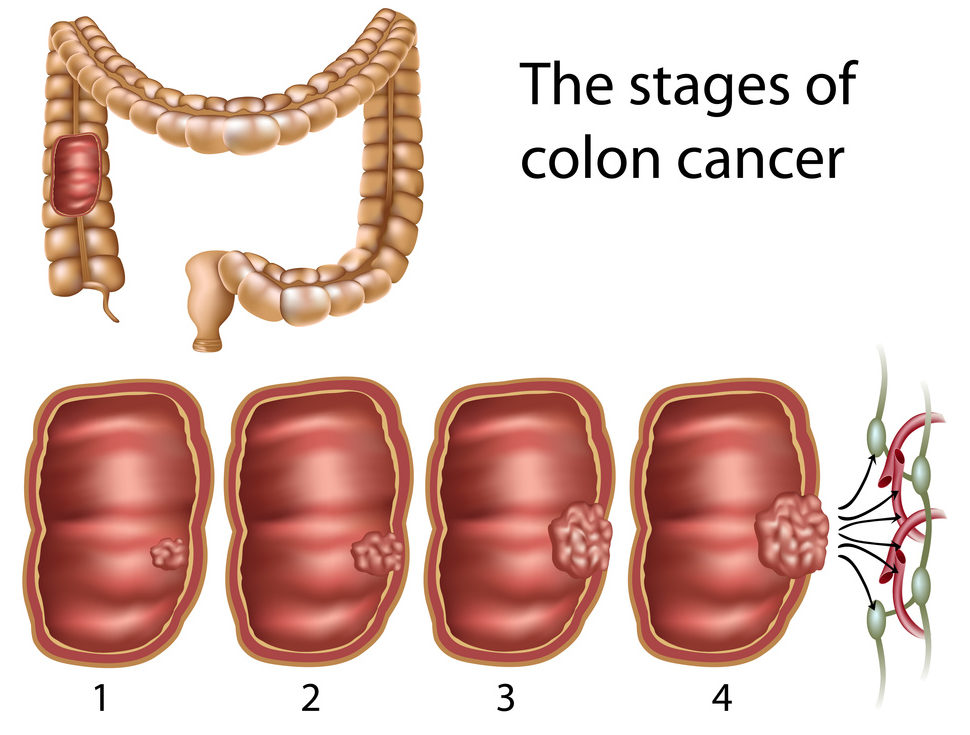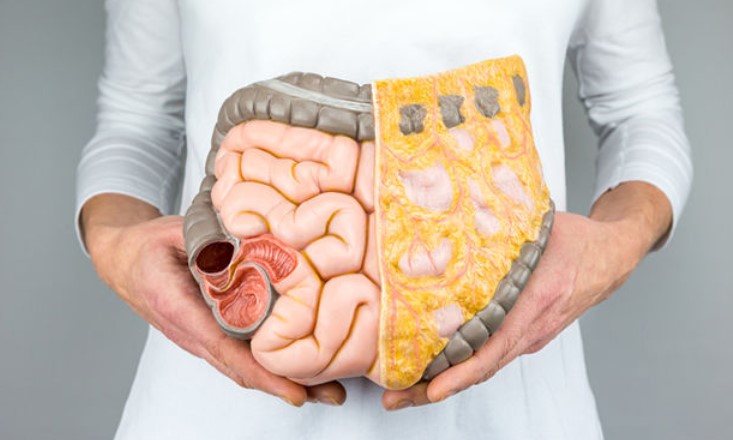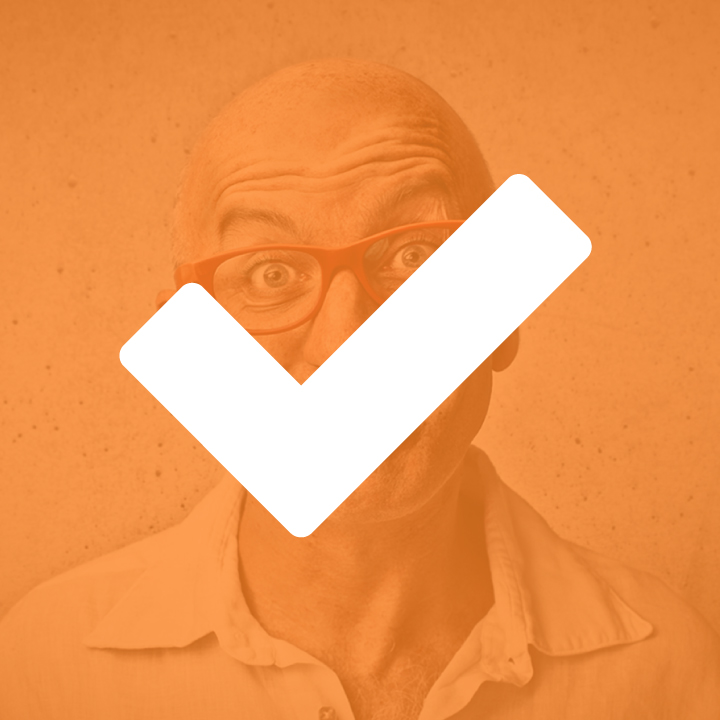Some figures for Switzerland

Early detection increases the chance of survival*
if diagnosed at the precancerous stage (polyps)
if diagnosed in the early stage of cancer
if diagnosed in the advanced stage of cancer
* chance of being alive 5 years after diagnosis
More on colorectal cancer
Colorectal Cancer
Colorectal Cancer Colorectal cancer is the second leading cause of cancer mortality in men and women in Europe1. The number of cases is expected to increase over the next two decades as a result of the aging population. This high mortality rate is due to the silent development of the disease as symptoms appear only in late stages when therapeutic
Colorectal cancer screening should be self-evident
PREVENTION : Colorectal cancer screening is voluntary but the physicians strongly recommend it Prof. Dr. med. Christoph Beglinger - Specialist of Gastroenterology Colorectal Cancer - Screening : Now, there are three options for the prevention. Switzerland lags behind regarding colorectal cancer screening, according to international comparison. Only 30% of men and women over the age of 50 get screened. In fact,
What you need to know about Colorectal Cancer
Colorectal cancer (CRC) is any cancer of the large intestine, which includes the colon and rectum.
Colorectal cancer is a cancer which develops from cells on the inner lining of the colon. It usually comes from an adenomatous polyp, a benign tumour. Some polyps can become cancerous.

Image Credit: Alila Medical Media
Colorectal cancer is a very common cancer that mainly affects people over the age of 50. With more than 4,200 new cases per year in Switzerland (1) , it represents the third most common cancer (1) and the second most deadly cancer (1). Colorectal cancer kills five people a day. One person in 20 in Switzerland will develop colorectal cancer after the age of 50.
(1) : Ligue contre le cancer
Colorectal cancer progresses slowly and doesn’t show signs or symptoms until an advanced stage. However, the following disorders you are cause for alarm:
- Rectum bleeding or any trace of blood in the stool
- Intestinal transit disorders that suddenly appear (diarrhea and/or constipation)
- A feeling that your bowel doesn’t empty completely
- Unknown and persistent abdominal pain
- Loss of weight, unexplained fatigue and anaemia
The following factors increase the risk of developing a colorectal cancer:
- The age : the chances of developing the disease may dramatically increase after the age of 50. 37% of patients are 50 to 69 when they are diagnosed, 55% are 70 and older
- Some inherited diseases of the intestine: inherited non-polyposis colorectal cancer and familial adenomatous polyposis (FAP)
- Intestine diseases (polyps, colorectal cancer) among near relations: father, mother, siblings
- A personal history of intestinal polyps
- Inflammatory chronic diseases of the intestine: ulcerative colitis or Crohn’s disease
- Dietary factors are involved (Diets that are high in red and processed meats), Alcohol, tobacco.
A good life style (diet, physical exercise, limited alcohol consumption, no smoking…) and regular screening help to reduce the risks of developing a colorectal cancer.
It is important to detect the cancer before symptoms appear. That is why a screening test is done in an apparently healthy population to find and highlight cancer. Only 30% of the 50+ Swiss population get screened, while early detection of colorectal cancer increases the chances of survival.
The chances of survival are :
– 100% for a person diagnosed at the precancerous stage (polyps)
– 90% for a person diagnosed at the early stage of cancer
– 10% only for a person diagnosed at an advanced cancer stage.
By adopting a screening reflex, it is possible to prevent these deaths due to colorectal cancer.
1. Colonoscopy

Colonoscopy is the gold standard for the detection of cancer or pre-cancerous intestinal lesions. Precancerous lesions discovered (polyps) can be removed directly during the examination. Removal of benign polyps prevents these polyps from transforming into colorectal cancer. The colonoscopy requires an upstream preparation with a diet to follow for 48 hours and the absorption of a special solution to “clean” the intestines the day before the examination. The examination is done at the gastroenterologist’s office or at the hospital/clinic, usually sedated.
2. Fecal occult blood test

The fecal occult blood test also allows colorectal cancer to be detected. The collection of the stool sample is done at home and then will be sent to the laboratory for analysis. Contrary to the colonoscopy, this test is not effective for detecting pre-cancerous lesions. If the test is positive, a colonoscopy is performed after discussion with the doctor.
3. Blood test

The liquid biopsy or Colox blood test can detect a cancer or precancerous lesions by measuring the biomarker profile present in the blood. The blood test is performed at a doctor’s office or directly at the laboratory and the blood sample is then analyzed by the laboratory. For more information, you can download this summary table.
For more information, download this summary table.
Treatment for colorectal cancer depends on various factors: the location and size of the colorectal cancer, type of the tumour and stage of the disease…
The main treatment methods for colorectal cancer are:
- Surgery
- Drug therapy: chemotherapy, immunotherapy
- Radiotherapy
Get screened and get your loved ones screened
Colorectal cancer kills 5 people in Switzerland every day.
This cancer can be prevented and cured in nearly all cases with early detection and regular screening from the age of 50.
At the moment, only 30% of men and women over the age of 50 are screened.
This rate is much lower than in neighbouring countries.
By tirelessly encouraging everyone to get screened and to get their loved ones screened, we believe it is possible to prevent these deaths from colorectal cancer.
By adopting and encouraging others to adopt a more positive attitude towards screening, we could make Switzerland the first country to eradicate deaths from colorectal cancer.
Let’s move more! Let’s eat healthily! And let’s get screened!
Together, let’s win the Colorectal Challenge.






